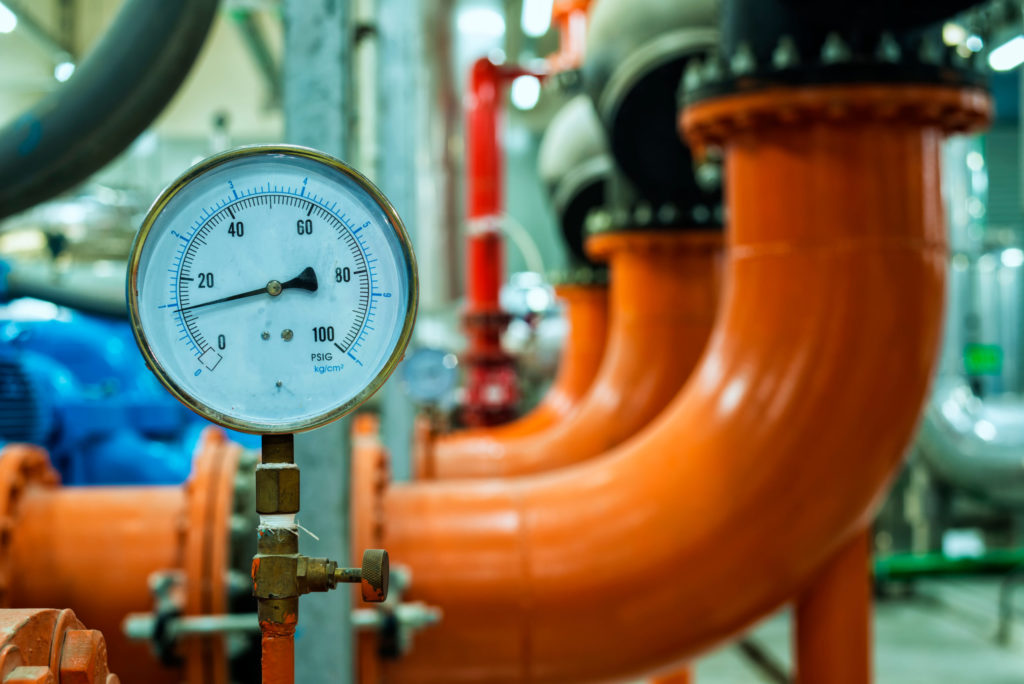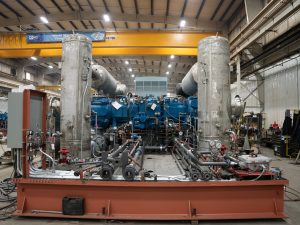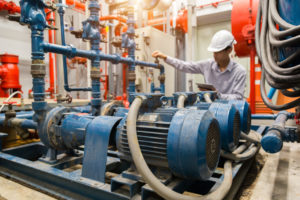For many companies, industrial chillers are an essential part of the operation process. Used in a wide array of applications, the industrial chillers do just what you’d think: they chill water or liquid as it is circulated through the equipment. While cooling liquids, products or machinery is the most common usage, industrial chillers can also be found in the food and beverage industry, in injection molding, as well as with lasers, semiconductors, chemicals and more.
Industrial chillers move heat from one location to another, and while water or water-based solution is commonly used to transfer the heat, it may require a reservoir or pumping system to execute the process. A pumping system is used to circulate cool water, while returning warmer water back to be cooled and continue the process. Industrial chillers leverage a refrigeration cycle to help with the chilling process.
THE REFRIGERATION CYCLE
Refrigerant, the chemical compound used in the process, works on the basic principle of compression and phase-change of the refrigerant from a liquid to a gas and back to a liquid. The refrigeration cycle starts with a low-pressure liquid/gas mix entering the evaporator. In the evaporator, heat from the process water or water/glycol solution boils the refrigerant, which changes it from a low-pressure liquid to a low-pressure gas. The low-pressure gas enters the compressor where it is compressed to high-pressure gas. The high-pressure gas enters the condenser, where ambient air or condenser water removes heat to cool it to a high-pressure liquid. The high-pressure liquid travels to the expansion valve, which controls how much liquid refrigerant enters the evaporator, thereby beginning the refrigeration cycle again.
TYPES OF CONDENSERS
Industrial chillers use two types of condensers: air-cooled and water-cooled. An air-cooled condenser uses air to cool and condense the hot refrigerant gas back down to a liquid. In a water-cooled condenser, water from a cooling tower cools and condenses the refrigerant.
BENEFITS OF INDUSTRIAL CHILLERS
No industrial process, machine, or motor is immune to inefficiencies. If it is producing heat, this is attributed to inefficiencies that exist during the processes. Removing the heat is vital to achieving optimal production times, prevention of shutdowns and even the longevity of the equipment being used. Just like maintenance on machines, industrial chillers help initiate cooling processes so issues like these do not arise. However, it also offers other benefits.
For example, the consistent temperatures and stability in pressure that industrial chillers provide remove variables that simplify and optimize the process so that the quality is never sacrificed. Also, the recirculation of water in the cooling process minimizes costs of water consumption. This efficient use of water not only cuts down on costs, but is also a green option for companies focused on the carbon footprint and environmental impact its operations have on the world around it.
RELIABLE INDUSTRIAL CHILLERS
The most important factor for industrial chillers is its reliability. The chilling process is vital to operations so there are some trusted brands we leverage for our customers. Gardner Denver, IPC Cooling, and Nano Chillers are three of the most trusted brands we partner with for industrial chillers. However, the only way to find out what is best for your company is by leveraging our experts to help you be efficient and effective with your chosen industrial chiller. Contact us today to see how Dearing can help.




